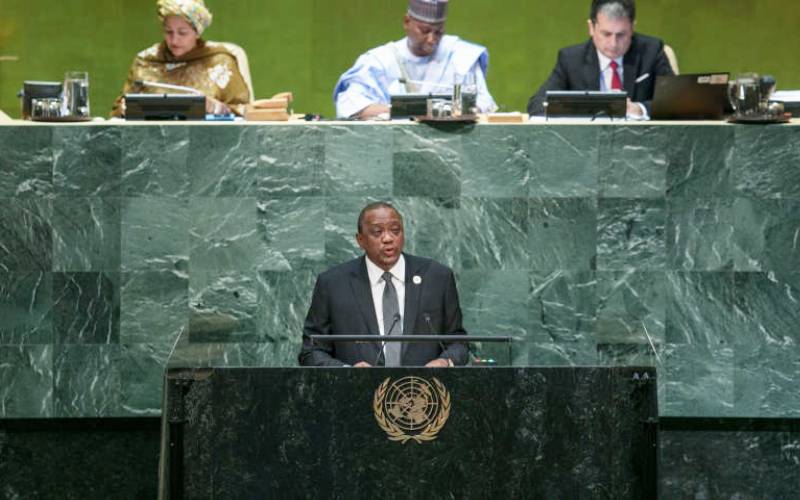×
The Standard e-Paper
Stay Informed, Even Offline

President Uhuru Kenyatta at the General Debate of the 74th United Nations General Assembly in New York.
The United Nations General Assembly’s annual ritual provides opportunity for leaders to establish new friendships or rekindle old ones.